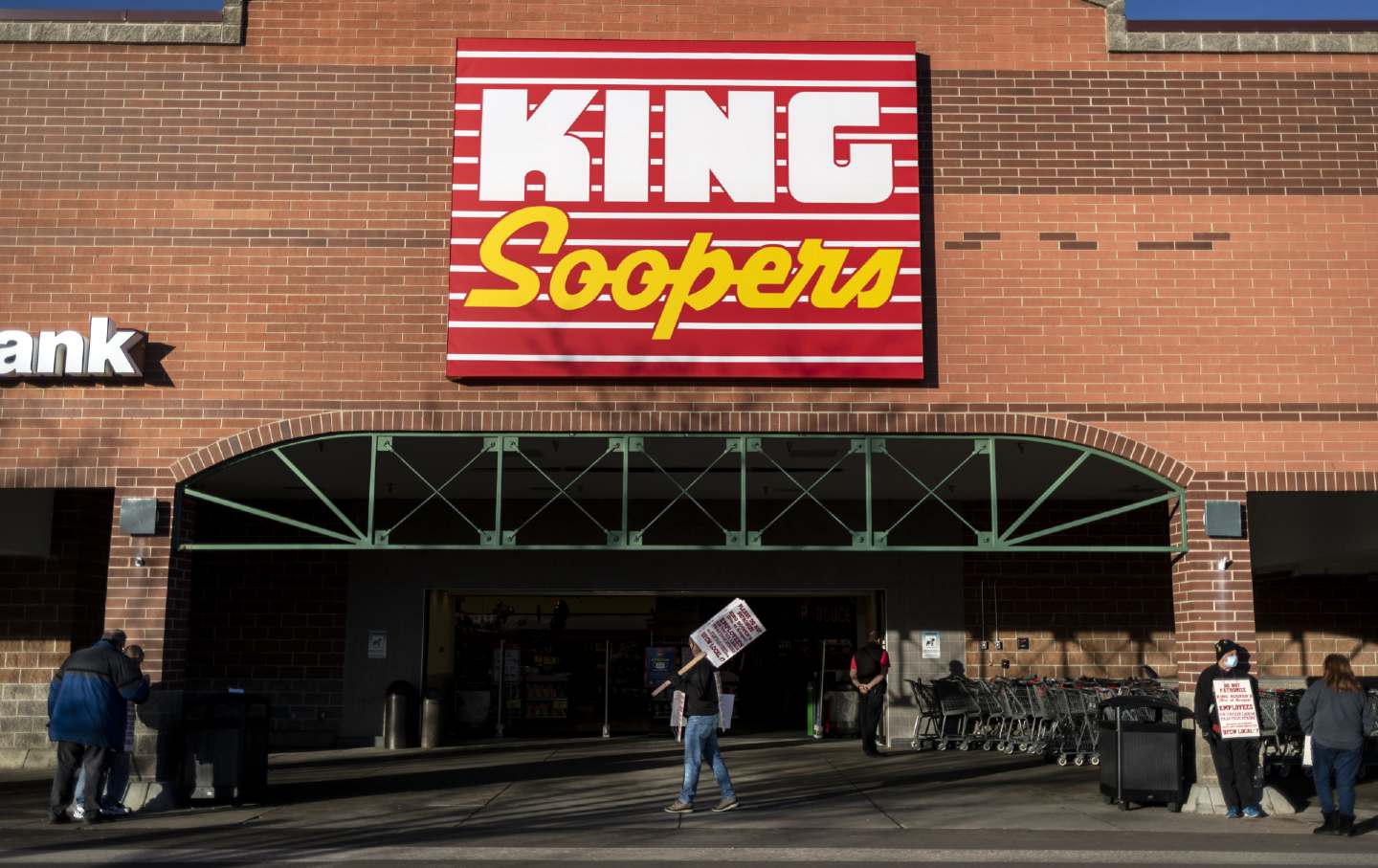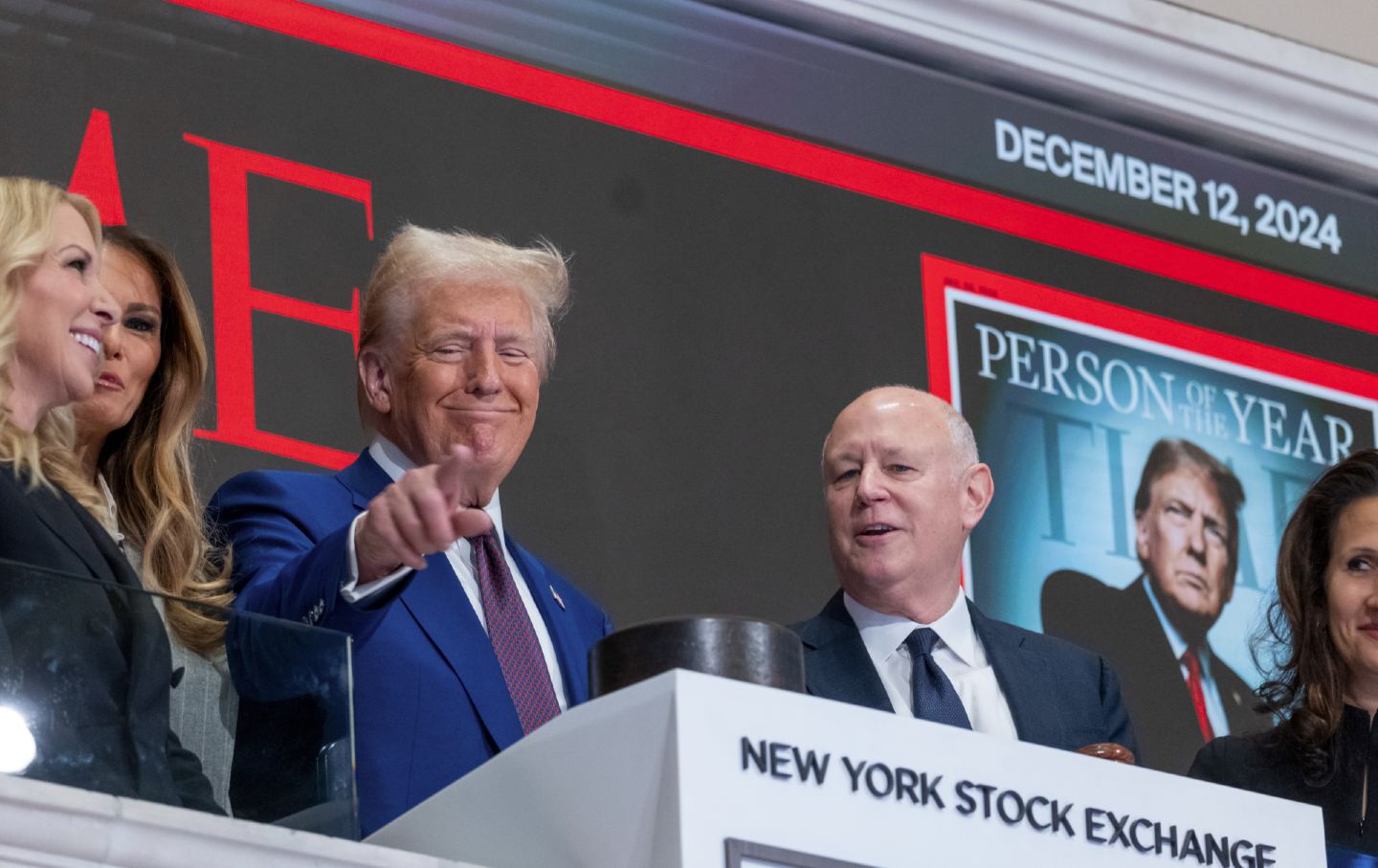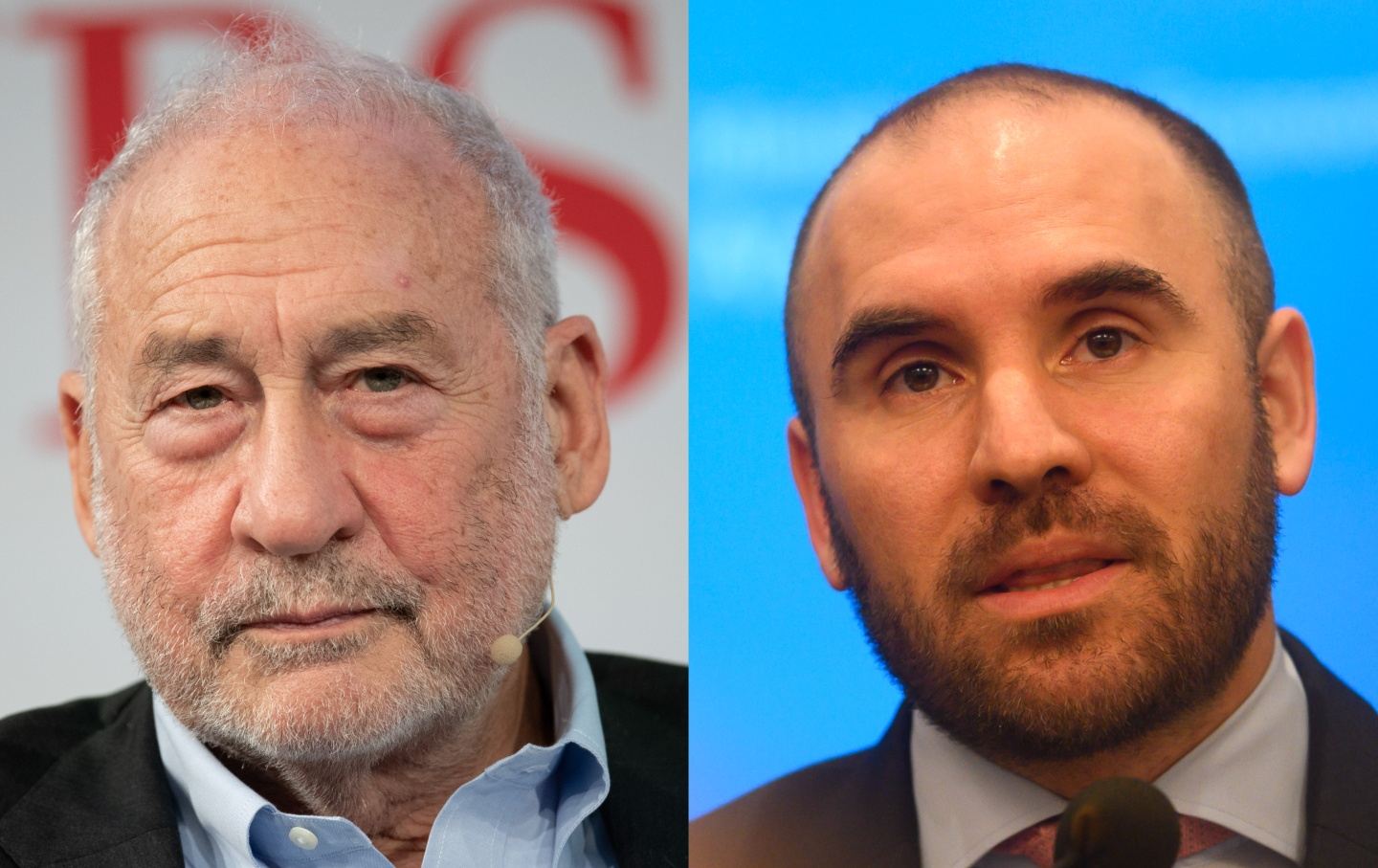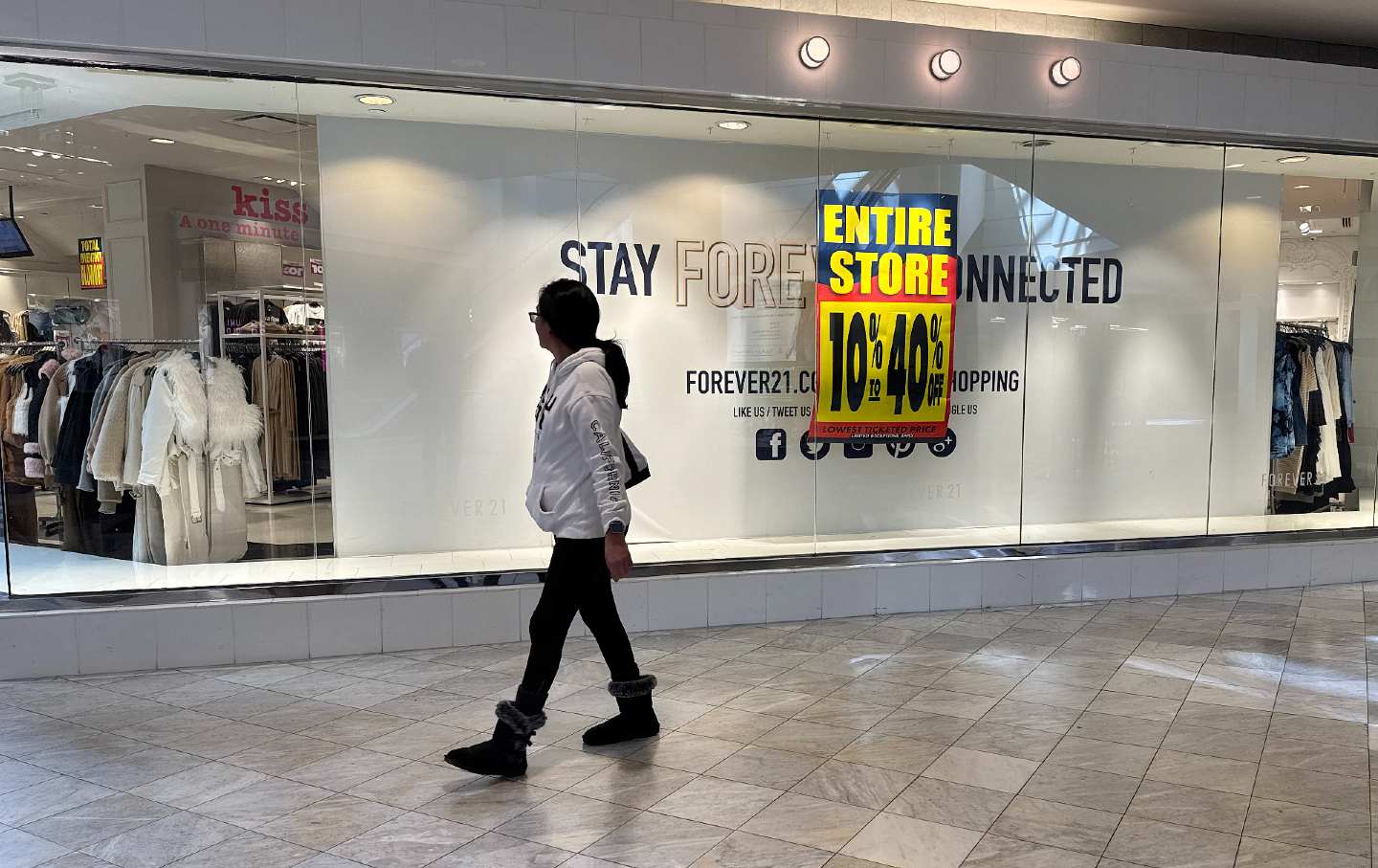The FTC Lawsuit Against Amazon Is the Biggest Antitrust Fight of Our Time
It’s also a test of whether even the federal government has the power, and the political will, to rein in corporate monopoly power.
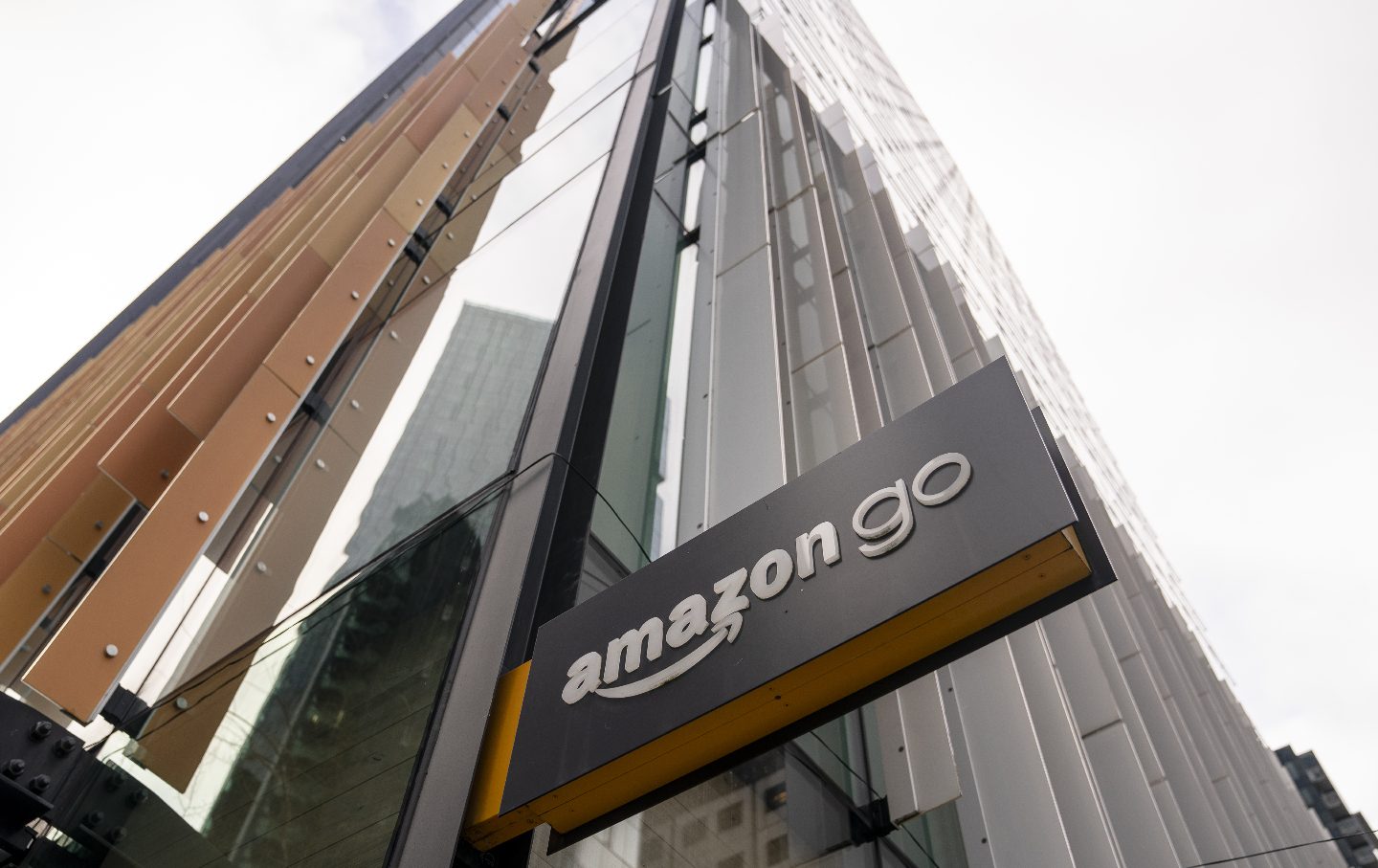
The Federal Trade Commission’s monopoly lawsuit against Amazon—the public, largely unredacted version was finally released last week—is the country’s most consequential antitrust case in a generation, at least. The FTC’s action hits at the heart of how Amazon grows and maintains its dominance of online retail—in which it spins the taxes and tolls it forces on third-party sellers into vast profits that help fund the rest of the Amazon monopoly machine. If the lawsuit succeeds, it will almost surely mean lower prices and more options for online shoppers and sellers. It may also transform a company used by most Americans in a way that will democratize the online retail market and deliver real options and innovation to an increasingly crucial industry. At the moment, the lawsuit’s potential feels like the breakup of AT&T in the 1980s—a decision that unlocked fundamental changes to the way we work and communicate with each other.
The lawsuit is also a strike against Amazon’s broader power. While the case focuses on the abuse of Amazon sellers and shoppers, there’s a tacit understanding that Amazon is an exploitation machine built to extract money, labor, and ideas from everything and everyone it touches, from the undignified conditions it forces upon its laborers, to its partnership with police to surveil our homes and neighborhoods. The lawsuit can help break down that power, too, shrinking Amazon’s ability, for example, to exploit its captured warehouse workforce or use its unlimited resources to sway governments to submit to its will. It’s a bold attempt to quash Amazon’s private power—an action with both democratic intent and a fundamentally democratic origin.
Indeed, the genesis of this case happened far outside the halls of the FTC. The government’s most powerful regulator’s declaration of war on the country’s most pernicious monopoly did not happen in a vacuum. The movement to break up Amazon got to this point because an army of workers, grassroots activists, small-business owners, scholars, and policymakers have come to understand Amazon’s unfettered monopoly stranglehold, and also to realize that only through their collective power can that stranglehold be broken. If the FTC does dismantle Amazon’s e-commerce monopoly, a budding, widespread movement will carry that victory on its shoulders.
The growing movement to challenge Amazon is so widespread because Amazon’s abuses are felt so acutely across the country. Logistics is one key example. Amazon’s warehousing and shipping operation has undergone mind-bending expansion over the past five years; it now employs more than three-quarters of a million workers, and operates 1,300 logistics facilities around the country—all built on the back of its monopoly online retail business, in which sellers are strong-armed into using and paying for Amazon’s storage and shipping. Talk to any delivery driver for any logistics firm and they’ll speak of the “Amazonification” of their jobs—the breakneck pace of the work, the surveillance, the suffocating heat of the summer months. Alongside its monopoly-fueled growth, Amazon’s toxic treatment of its logistics workers has spread like cancer through the industry.
In most every community and every corner of the economy where Amazon’s monopoly has inflicted pain, people, organizations and entire communities have come to understand that Amazon’s ability to abuse and extract comes from its power—and that only by fighting back, individually and collectively, can they succeed in breaking that power. Labor movements have risen to challenge Amazon’s notoriously bad working conditions. The International Brotherhood of Teamsters believes breaking Amazon’s grip on the logistics industry would mean better outcomes for workers, both within the union and throughout the workforce. Even when it secured one of the strongest union contracts in history with UPS over the summer, the Teamster’s ultimate, long-term goal of organizing Amazon—a company they call “enemy no. 1”—simmered in the background. Meanwhile, workers in Southern California, Georgia, Illinois, Minnesota, New York, New Jersey, Missouri, and elsewhere are organizing shops, worker petitions. and solidarity rallies with striking autoworkers and nurses.
And Amazon’s incursions have fueled local fights well beyond the shop floor. Communities and grassroots organizers have battled to keep Amazon’s invasive logistics infrastructure from polluting the air they breathe. Cohorts of small businesses have resisted Amazon’s power to nickel and dime them with fees and decide their success or failure and organized against its predatory fees. Likewise, small delivery firms are fighting to break Amazon’s unfair control over how they pay and treat their drivers. Democratic actions to take back power from Amazon continue to grow and spread. It feels like a movement taking shape.
Collectively, this movement against Amazon’s power has coalesced in Athena, a big-tent coalition made up of organizations in the labor, racial justice, environmental justice, privacy rights, and small-business communities, collectivizing and amplifying their ability to overturn Amazon’s autocratic dominance. As Athena organizer Sasha Hammad and Liberation in a Generation senior policy director Azza Altiraifi recently wrote, “A leftist vision and practice of antimonopoly aims to dismantle the oppressive social and economic systems that give rise to concentrated corporate power in the first place.” That’s the bigger vision for the movement: changing the structure of our economy by harnessing democracy against monopoly rule.
The young movement has led to major wins. Against the odds and up against one of the most well-resourced corporations in the world, the workers of JFK8 organized and prevailed. In New York City, a coalition of worker, racial justice, and environmental justice organizations came together to successfully beat back the company’s plans to bring its second headquarters to the city. The FTC’s lawsuit is undoubtedly a win for the burgeoning movement.
This renewed fight against monopoly power has also galvanized public support in favor of reining in and breaking up Big Tech monopolies like Amazon. That collective call for Big Tech accountability convinced Congress that it was time to act, and in 2020 the House Antitrust Subcommittee concluded an 18-month investigation of Big Tech monopolies by establishing a clear record of Amazon’s monopoly abuses. The next year, the Senate, by a wide and bipartisan margin, approved Lina Khan to lead the FTC, putting perhaps the country’s foremost critic of monopoly power in charge of our main trustbuster.
The FTC’s success against Amazon in court could mean major gains for workers and communities under Amazon’s thumb. If the court decides to break Amazon’s monopoly by spinning off its logistics business into a stand-alone company, for example, Amazon Logistics would suddenly have to compete on level ground with unionized shippers like UPS and the US Postal Service, who would be free to win sellers’ business without Amazon’s threat of punishment hanging over their heads. Today, Amazon accounts for the majority of all e-commerce-related shipping. Allowing UPS or others to compete for that business on a level playing field would mean major gains and expansion for those shippers. That means more good union logistics jobs at UPS—where workers are paid nearly double what they can make at Amazon, and far more pressure on Amazon to raise pay and working conditions to keep its own workers in-house.
More broadly, breaking up Amazon would mean breaking its vast political power, including its power to union-bust on the ground and lobby lawmakers to keep regulations off the books. Opposition to monopoly has been a core principle in America since its founding precisely because it keeps private power from undermining our democratic values. Opposition to outsize corporate power is key for the anti-monopoly movement, from labor organizing to privacy rights, to antitrust. The FTC’s lawsuit embodies this democratic spirit and pushes the movement close to this goal.
Even if things go well for the government, the FTC’s lawsuit has many months to go before the case goes to trial and we find out whether this particular democratic force can break Amazon’s power over the economy and our lives. In the meantime, the broader antimonopoly movement will keep working, keep chipping away at the power of this generation’s Standard Oil. This is already democracy in action. As Amazon is learning, it’s hard to escape a movement that’s everywhere.
Support independent journalism that exposes oligarchs and profiteers
Donald Trump’s cruel and chaotic second term is just getting started. In his first month back in office, Trump and his lackey Elon Musk (or is it the other way around?) have proven that nothing is safe from sacrifice at the altar of unchecked power and riches.
Only robust independent journalism can cut through the noise and offer clear-eyed reporting and analysis based on principle and conscience. That’s what The Nation has done for 160 years and that’s what we’re doing now.
Our independent journalism doesn’t allow injustice to go unnoticed or unchallenged—nor will we abandon hope for a better world. Our writers, editors, and fact-checkers are working relentlessly to keep you informed and empowered when so much of the media fails to do so out of credulity, fear, or fealty.
The Nation has seen unprecedented times before. We draw strength and guidance from our history of principled progressive journalism in times of crisis, and we are committed to continuing this legacy today.
We’re aiming to raise $25,000 during our Spring Fundraising Campaign to ensure that we have the resources to expose the oligarchs and profiteers attempting to loot our republic. Stand for bold independent journalism and donate to support The Nation today.
Onward,
Katrina vanden Heuvel
Editorial Director and Publisher, The Nation



